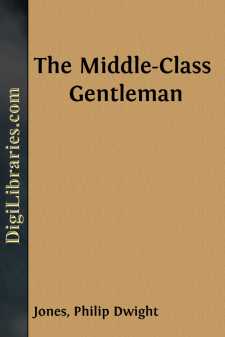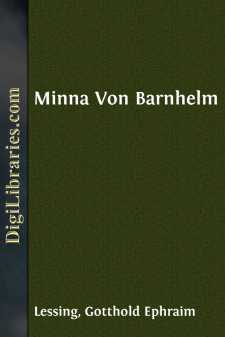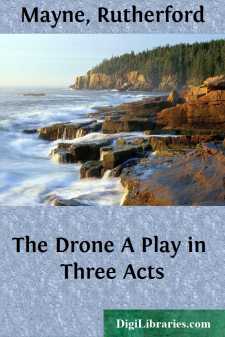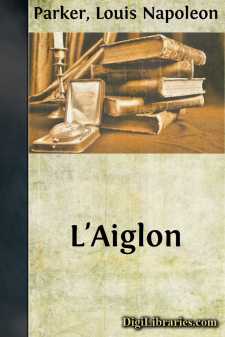Drama Books
Sort by:
ACT ONE SCENE I (Music Master, Dancing Master, Musicians, and Dancers) (The play opens with a great assembly of instruments, and in the middle of the stage is a pupil of the Music Master seated at a table composing a melody which Monsieur Jourdain has ordered for a serenade.) MUSIC MASTER: (To Musicians) Come, come into this room, sit there and wait until he comes. DANCING MASTER: (To dancers) And...
more...
INTRODUCTORY NOTE Gotthold Ephraim Lessing was born at Kamenz, Germany, January 22, 1729, the son of a Lutheran minister. He was educated at Meissen and Leipzic, and began writing for the stage before he was twenty. In 1748 he went to Berlin, where he met Voltaire and for a time was powerfully influenced by him. The most important product of this period was his tragedy of "Miss Sara Samson," a...
more...
by:
Rutherford Mayne
The Drone A COMEDY IN THREE ACTS ACT I. Scene: The farm kitchen of John Murray. It is large and spacious, with a wide open fire-place to the right. At the back is one door leading to the parlour and other rooms in the house, also a large window overlooking the yard outside. To the left of this window is the door leading into the yard, and near the door an old-fashioned grandfather's clock....
more...
A PROLOGUE TO BE SPOKEN BY BETSY Our scene is the wind-swept coast of Devon. By day there is a wide stretch of ocean far below, and the abutments of our stage arise from a dizzy cliff. The time is remote, and ships of forgotten build stand out from Bristol in full sail for the mines of India. But we must be loose and free of precise date lest our plot be shamed by broken fact. A thousand years are but...
more...
by:
Oliver Goldsmith
Excuse me, sirs, I pray—I can't yet speak—I'm crying now—and have been all the week."'Tis not alone this mourning suit," good masters:"I've that within"—for which there are no plasters!Pray, would you know the reason why I'm crying?The Comic Muse, long sick, is now a-dying!And if she goes, my tears will never stop;For as a player, I can't squeeze...
more...
by:
Henrik Ibsen
A DOLL'S HOUSE ACT I (SCENE.—A room furnished comfortably and tastefully, but not extravagantly. At the back, a door to the right leads to the entrance-hall, another to the left leads to Helmer's study. Between the doors stands a piano. In the middle of the left-hand wall is a door, and beyond it a window. Near the window are a round table, armchairs and a small sofa. In the right-hand...
more...
by:
Ben Jonson
INTRODUCTION THE greatest of English dramatists except Shakespeare, the first literary dictator and poet-laureate, a writer of verse, prose, satire, and criticism who most potently of all the men of his time affected the subsequent course of English letters: such was Ben Jonson, and as such his strong personality assumes an interest to us almost unparalleled, at least in his age. Ben Jonson came of the...
more...
THE FIRST ACT At Baden, near Vienna, in 1830. The drawing-room of the villa occupied by Maria Louisa. The walls are painted al fresco in bright colors. The frieze is decorated with a design of sphinxes. At the back, between two other windows, a window reaching to the ground and forming the entrance from the garden. Beyond, the balustrade of the terrace leading into the garden; a glimpse of lindens and...
more...
GEORGE HENRY BOKER (1823-1890) The name of George Henry Boker suggests a coterie of friendships—a group of men pledged to the pursuit of letters, and worshippers at the shrine of poetry. These men, in the pages of whose published letters and impressions are embedded many pleasing aspects of Boker's temperament and character, were Bayard Taylor, Richard Henry Stoddard, and Charles Godfrey Leland,...
more...
by:
Spokeshave
Dramatis Personae Caesar . . . . . . . Ruler of the State. Francos . . . . . . Governor General of a Province. Quezox . . . . . . Resident Delegate from the Province. Page. Scene: Throne Room at the Capitol Caesar: Most noble Francos, I greet thee heartily. A function truly noble falls within thy grasp; And thou wilt with it deal as only...
more...











